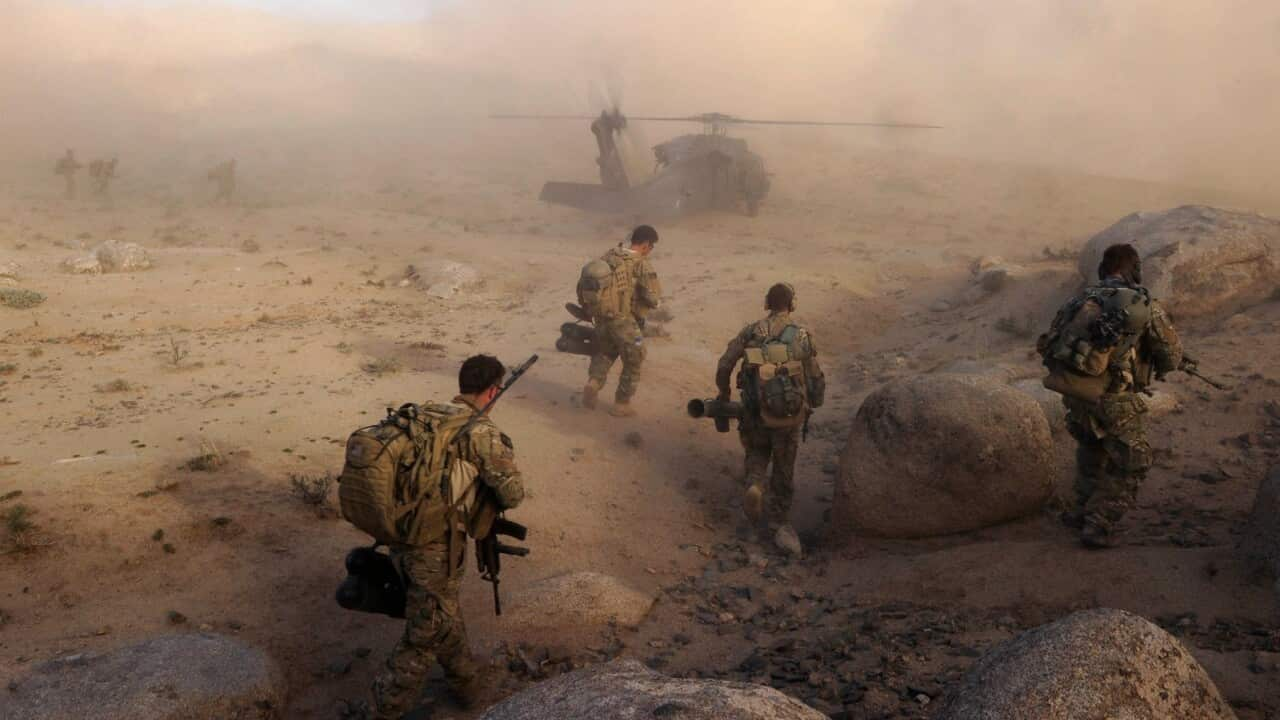He says he's seen bullet holes in bloody shirts and first aid kits strewn where bodies had laid.
But when he forwarded complaints on behalf of local Afghans about the alleged conduct of Australian soldiers in Uruzgan province to Australian Defence Force legal officers, he found the claims were often dismissed.
For Abdul Ghafar Stanikzai, the damning findings of the Brereton report into Australian special forces in Afghanistan, released on Thursday, is now vindication almost a decade in the making.
"The Australian government is accepting that something was wrong and we need to fix that,” Dr Stanikzai told SBS News from his home in Adelaide.
“That's the biggest thing and I feel much happier and much proud (sic) that I was part of these things."
For five years, Dr Stanikzai was the provincial manager of the Afghan Independent Human Rights Commission where he says he’d often have locals in the province's capital Tarin Kowt rush to him for help.
Their loved ones had been beaten, tortured, detained or found dead without any explanation, they would tell him. Sometimes, their livelihoods were damaged during operations. They wanted answers.
It was the job of Dr Stanikzai to pass on the complaints to the Australian legal officers. Most of the time, the response was simple: “the matter is closed” or “no further action is required”.
When he shared the response back with the locals, the frustration grew.
“They were saying ‘No, he was innocent, he was working on his farm’,” Dr Stanikzai says.
The Brereton inquiry acknowledges that complaints from locals were sometimes ignored by Australian officers.
The report admits there was a tendency to “discount local national complaints as insurgent propaganda or motivated by a desire for compensation”.
“This presumption was inconsistent with the counter-insurgency effort, and resulted in a predisposition on the part of quick assessment officers to disbelieve complaints,” it added.
Dr Stanikzai says he feels relieved that the report has been released but also surprised.
“Why they did not accept those complaints [at the time]?” he said.
“It's nearly 10 years ago … [they] simply refused ... but now they are accepting, so it's mean that there was something wrong on that level in the Australian chain of command.”
Dr Stanikzai says he saw many positive gains for Afghans made by the Australian Defence Force in Tarin Kowt, including the establishment of a court system that remains in place to this day.

Mr Stanikzai attending an event as provincial manager of the Afghan Independent Human Rights Commission Source: Supplied
“The situation was horrible and scary,” Dr Stanikzai says of the time he was asked to survey a scene by a grieving family, only hours after an incident they believed was deliberate had taken place.
“It was shocking and it was so disappointing.”
“The expectation was high that there should be more than an investigation,” he says, but he immediately knew he wouldn’t be able to do much.
For the families of the alleged victims and complainants, Dr Stanikzai says the Brereton report is significant.
"This report will mean a lot to them,” he said.
Dr Stanikzai arrived as a refugee in Australia in 2014, shortly after his time at the Commission ended, after his life was threatened by militants who held unfounded suspicions he was working for the Australian government.











